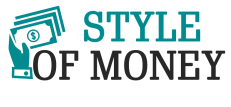Securing a competitive corporate loan interest rate in Singapore is not a one-time financing decision; it is a strategic move that has a direct impact on cash flow, capital structure, and long-term business viability.
Chief Financial Officers (CFOs) are often concerned about locking in a loan rate at the right time and with the right structure, as this policy can mean the difference between operational agility and financial drag. Fortunately, understanding the variables that influence these rates, and knowing when and how to fix them, can easily guide CFOs towards a wise financial decision.
Timing Matters: Interest Rate Cycles and MAS Policy Direction
CFOs need to monitor both global interest rate cycles and domestic signals from the Monetary Authority of Singapore (MAS). The corporate loan interest rate in Singapore is closely tied to the SORA (Singapore Overnight Rate Average) benchmark, which reflects overnight interbank borrowing rates. While global central banks shift their monetary stance, SORA movements follow, influencing floating-rate loan packages. Locking in during periods of low SORA can stabilise repayment costs and shield the business from future hikes.
Timing also matters from a seasonal or fiscal planning perspective. Banks tend to offer promotional rates towards quarter or year-end periods to meet lending targets. CFOs should work closely with relationship managers to understand when fixed-rate packages are likely to be most favourable.
Floating vs Fixed: Making the Right Structural Decision
Singapore-based businesses often have the option of choosing between floating and fixed-rate corporate loans. Floating rates, while initially lower, expose the borrower to volatility. Fixed-rate loans provide cost predictability but often come with slightly higher upfront pricing. The decision should be based on a company’s cash flow stability, interest rate outlook, and capital planning horizon.
Fixed-rate loans offer insulation against rate shocks for CFOs managing high-growth or cyclical businesses. However, those operating with shorter project cycles or expecting near-term monetary easing may prefer floating rates. A hybrid structure with partial hedging using interest rate swaps can balance risk and flexibility in many cases.
Factors That Influence the Rate You Lock In
Corporate loan interest rates in Singapore are not standardised; they depend on a range of borrower-specific factors. Creditworthiness, past repayment behaviour, cash flow coverage ratios, industry sector, and existing debt levels all affect the rate banks are willing to offer. CFOs should ensure their financial statements are robust, audited, and show healthy working capital management to negotiate from a position of strength.
Another overlooked factor is the relationship with the bank. Long-term clients with bundled services (such as trade finance, FX hedging, or treasury deposits) may secure better terms. Some lenders also offer preferential rates for ESG-aligned companies or those with sustainability-linked borrowing targets.
Legal and Operational Implications of Rate Lock-In
Once a rate is locked, breaking the agreement or refinancing can incur prepayment penalties or breakage costs. CFOs must ensure the loan tenure, repayment structure, and covenants are aligned with projected business cycles. Legal review is essential; some loan agreements may include clauses that allow for rate adjustments under specific conditions, such as changes in credit rating or regulatory requirements.
It is also critical to synchronise internal cash flow forecasts with repayment timelines. Mismatches between operating income and debt service obligations, especially under a fixed-rate structure, can create liquidity strains. Consider scenario testing against revenue stress cases before committing.
Final Thoughts
Locking in a corporate loan interest rate in Singapore is not merely about finding the lowest number; it’s about aligning the financing structure with long-term financial strategy. CFOs must balance rate predictability and flexibility, maintain good credit positioning, and fully grasp the contractual ramifications of their decision. Locking in a preferable corporate loan rate can enhance financial clarity, reduce funding risk, and support confident business expansion.
Visit RHB Bank to secure a fixed-rate loan package that suits your business needs.

